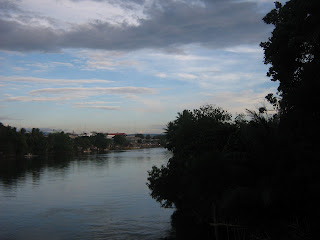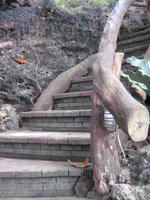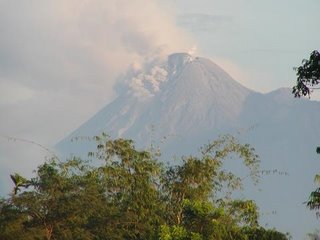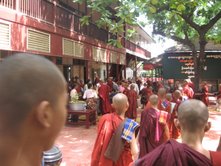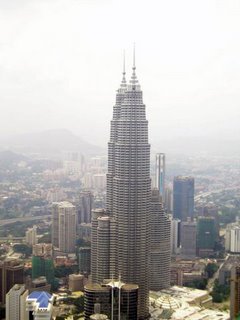 On the day that Gemma Bagayaua of Newsbreak was arrested for libel, we were made to strip inside the Davao city jail in Maa just to visit a broadcaster behind bars.
On the day that Gemma Bagayaua of Newsbreak was arrested for libel, we were made to strip inside the Davao city jail in Maa just to visit a broadcaster behind bars.“What is our fault that we are made to strip like this?” asked Silya Lektrika, my woman companion, who was disgusted by the ordeal. “Are you only out to humiliate us?”
“Who is that prisoner you want to visit, anyway?” asked the inspecting woman cop who surprisingly didn’t even bother to look if a gun or shabu was hidden in my sanitary napkin. “What is his case?”
“He is a broadcaster. He is jailed for libel.”
On the television breaking news later that day, we watched a police handcuffed (or was I just imagining it?) Gemma Bagayaua inside Newsbreak office on Tektite Tower in Makati for the story she wrote for Newsbreak about a man from Vigan who wielded power in the country. In my mind, I saw the metallic chain circled her delicate wrists almost like a bracelet, except that unlike a bracelet, those handcuffs drove home a shattering message to intimidate, to humiliate and to crush her spirit.
Gemma Bagayaua was not able to post bail that day. Her arrest warrant was served at the last hour. When Newsbreak tried to post bail, the Court officer in charge was already on his way home, so that, Gemma Bagayaua, who wasn’t able to avail of the night bail, went through the humiliation of prison life, if only for a night. For libel has been used to threaten and intimidate journalists in the country, to silence voices critical of those in power.
Lex Adonis, a Davao radio broadcaster who carried a story of an important government official allegedly caught in a hotel with a police major’s wife, did not bother to present his side in Court when it was his turn to refute the accusations hurled against him. He jumped bail and was tried in absentia. He was sentenced to four and a half years in prison. He was already there two weeks when it crossed the minds of his colleagues to visit him in jail, not to question the Court’s decision, not to question the merit of the case but perhaps, to ask him why he didn’t bother answer the accusations against him. Why didn’t he ever bother presenting his side? Was it true he had approached quite a number of lawyers who turned him down because they did not want to fight his accuser, a powerful man very close to Malacanang? I thought I could take some shots of a broadcaster holding the cold prison bars that day only to find out as we approached the whitewashed, barbed wired prison walls that no, we can’t bring in our camera, we can’t bring in our cell phone, we can’t bring in our tape recorders, we can’t bring in our notebooks, we can’t bring in our ballpen. Most of all, we were not allowed to wear belts, we had to leave them to the guards at the gate. Our men companions were complaining that walking without belts made them feel naked. They were complaining that their pants might fall. The guards stamped Davao city jail marks upon our arms. After they were searched, the men disappeared inside the gate. It was our turn to enter but the guard stopped us. “We’re not allowed to inspect women here,” said the male guard, “It’s illegal.” We thought he was joking. He pointed to the woman cop standing in the corner. We approached the woman, who said as soon as we came face to face with her: “You have to strip.”
Silya Lektrika’s eyes almost popped out of their sockets. “Strip?! Why?!”
The woman cop shrugged her shoulders. “It’s the rule here,” she said, with an air of bored indifference. “You have to strip.”
Shocked, Silya Lektrika faced the guard, then, turned her back and faced the woman cop again. “What will you get if you see our bodies naked?” she asked. Afterwards, she turned to the woman cop again and asked, “But can we, at least, close this door while we strip?”
“No,” the woman guard said. “You don’t need to close the door. No one will watch you anyway.”

So, I started arguing with myself. I started arguing with Silya Lektrika, my woman companion. Our bodies---Silya Lektrika’s and mine---suddenly became the site of struggle, the site of war. What is it about our bodies that the world wants to see, anyway? Are women’s bodies keys to women’s soul? Do the jail guards harbor the illusion that they can conquer us by just looking at our bodies? But what is it about naked bodies, anyway?
“Well, it’s up to you if you don’t want to strip,” said the woman cop, turning her back to us. “But you won’t get inside the jail.”
So, I told myself to keep quiet. I have the ability to slip in and out of my body. I took my pants down to my knees and looked at the woman’s cop’s face for reaction but the woman cop was not even looking at me.
“Have we committed any crime that you subject us to this humiliation?” Silya Lektrika resumed asking the woman again. “We’re only here to visit a broadcaster jailed for libel. We haven’t even committed libel, yet, (for she was thinking, libel is a real threat for her) and what is libel, anyway, compared to murder, drug trafficking, embezzlement of public funds, corruption, cheating in an election, illegitimate rule, dictatorship, assassination, ethnocide, extra judicial killings, etc.?” But the woman cop wasn’t listening. It was only much, much later, when I finally reached home and watched the breaking news on TV to see another journalist arrested for libel that I realized what all these stripping naked, handcuffing of hands, and humiliations all about. It suddenly dawned on me that as long as libel remains to be a criminal offense in this country, journalists will continue to face the threat of going to prison like real criminals once they happen to antagonize powers-that-be in their stories. I can hear Silya Lektrika grumbling in my mind. "Who's afraid of the naked truth, anyway?" she asked.










